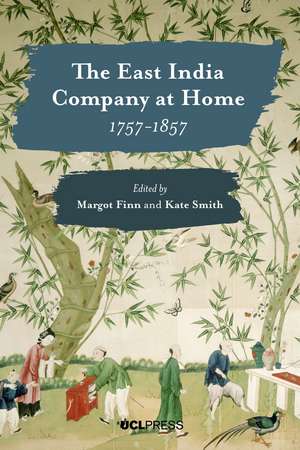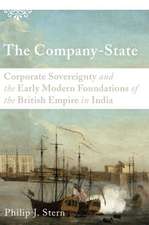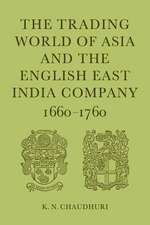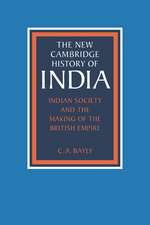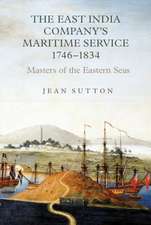East India Company at Home, 1757-1857
Autor Margot Finn, Kate Smithen Limba Engleză Paperback – 14 apr 2018
In the century between 1757 and 1857, The East India Company brought both sizeable affluence and fresh perspective back home to Britain from the Indian subcontinent. During this period, the Company shifted its activities and increasingly employed civil servants, army officers, surveyors, and doctors, many of whom returned to Britain with newly acquired wealth, tastes, and identities. This new volume moves beyond conventional academic narratives by drawing on wider research, exploring how the empire in Asia shaped British country houses, thus contributing to the ongoing conversation on imperial culture and its British legacies.
Preț: 217.74 lei
Nou
Puncte Express: 327
Preț estimativ în valută:
41.67€ • 45.25$ • 35.00£
41.67€ • 45.25$ • 35.00£
Carte în stoc
Livrare din stoc 12 martie
Preluare comenzi: 021 569.72.76
Specificații
ISBN-13: 9781787350298
ISBN-10: 1787350290
Pagini: 500
Ilustrații: 99 illustrations
Dimensiuni: 152 x 235 x 43 mm
Greutate: 1 kg
Ediția:1
Editura: UCL Press
Colecția UCL Press
ISBN-10: 1787350290
Pagini: 500
Ilustrații: 99 illustrations
Dimensiuni: 152 x 235 x 43 mm
Greutate: 1 kg
Ediția:1
Editura: UCL Press
Colecția UCL Press
Notă biografică
Margot Finn is professor of modern British history at UCL and president of the Royal Historical Society. Kate Smith is a senior lecturer in eighteenth-century history at the University of Birmingham.
Recenzii
"an impressive process of distillation Margot Finn and Kate Smith have put together a coherent survey of the material traces of old India hands – the lucky ones who survived to be repatriated and to make their mark anew in Britain – compiled from a refreshing variety of perspectives"
Descriere
In the century between 1757 and 1857, The East India Company brought both sizeable affluence and fresh perspective back home to Britain from the Indian subcontinent. During this period, the Company shifted its activities and increasingly employed civil servants, army officers, surveyors, and doctors, many of whom returned to Britain with newly acquired wealth, tastes, and identities. This new volume moves beyond conventional academic narratives by drawing on wider research, exploring how the empire in Asia shaped British country houses, thus contributing to the ongoing conversation on imperial culture and its British legacies.
